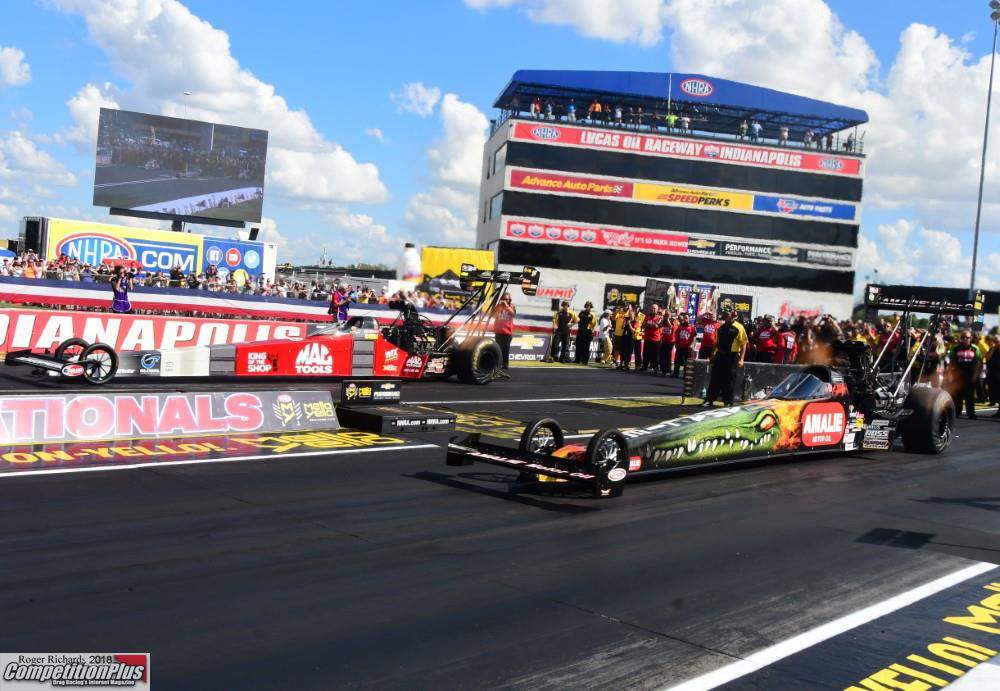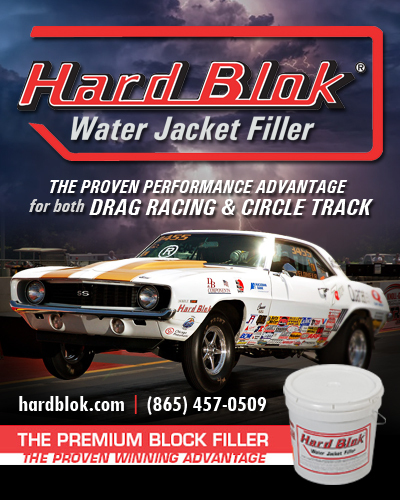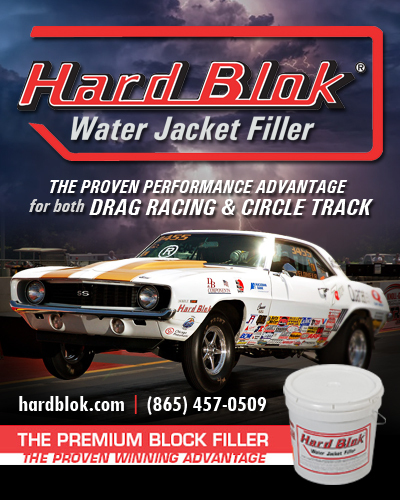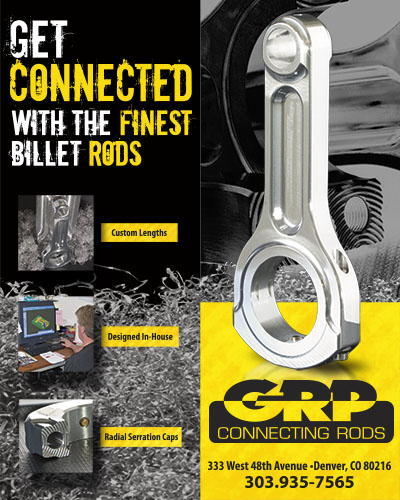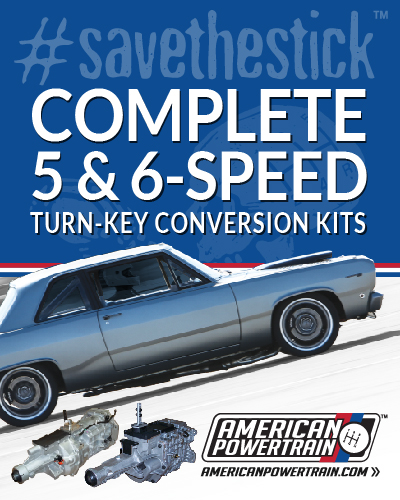LIFE, CALAMITY SHAPED MCMILLEN INTO INDY WINNER
 The picture hanging in the lounge of Terry McMillen’s hauler serves as a stark reminder.
The picture hanging in the lounge of Terry McMillen’s hauler serves as a stark reminder.
Drag racing can be a cruel and unforgiving sport. But so can life.
The picture is also a reminder of how persistence and determination will push a racer beyond what they think is possible.
A year ago, McMillen, a racer who admittedly if he didn’t have bad luck, he’d have no luck at all, drove his way to the most improbable Chevrolet Performance NHRA U.S. Nationals win since Tom McEwen won the 1978 race.
“It’s still surreal,” McMillen admitted. “I mean you think back a year ago, and we were fortunate enough to win the U.S. Nationals. I remember crossing the finish line, I remember looking up and seeing the win light on, and it was just, from that moment on, it was just breathtaking. You get down to the end of the track; I’m crying, it’s like, ‘Man, I just won the biggest race ever.”
“It’s just an amazing opportunity, and we went through a lot of trials and tribulations to get there. So it made it that much more rewarding and I think other than that it’s like you look at the fellow racers that have raced over the years that have raced a lot of Top Fuel and have never won the U.S. Nationals and here it is some single-car team comes out there and has the opportunity to win it and we do win it. There’s nothing more you could ask for anything to be more special.”
Some might say, “The trials which do not kill you, will only make you stronger.”
By McMillen’s assessment, he figures he should be able to bench press a 1959 Cadillac.
“The one thing that I’ve not really been good at is quitting anything,” McMillen added. “I know that over the years we’ve had a lot of difficult times and wrecked a lot of parts. Sometimes didn’t even know where the next dollar was coming from, and how we were going to buy the next pieces or parts that we needed, let alone worry about making sure that I have some food on the table for my family.
“There were some really, really lean times and very scary times that a better man, a smarter man, probably would have walked away. But it’s not in my nature. I’ve learned how to make things happen and go by my single line I guess, and that is, ‘Persistence outweighs resistance.”
“As long as I keep that saying in the back of my head, I don’t feel I can fail at anything. It may be difficult, but I won’t fail.”
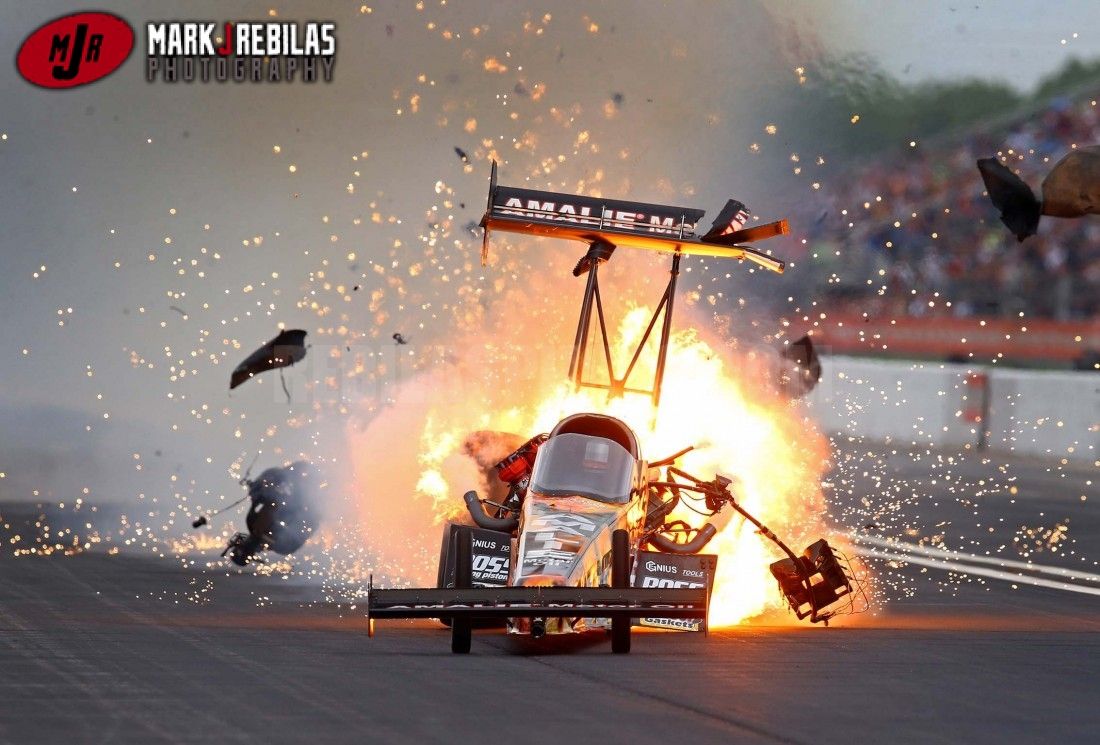 If anyone was in dire need of an intervention, it was McMillen. Call nitro racing an addiction, or just pure hard-headedness for the man from Elkhart, Ind., McMillen admits he had and still does have a racing problem.
If anyone was in dire need of an intervention, it was McMillen. Call nitro racing an addiction, or just pure hard-headedness for the man from Elkhart, Ind., McMillen admits he had and still does have a racing problem.
“I mean you look at the amount of money that we spend to do what we all do and it’s kind of like that, but it’s a little more organized,” McMillen explained. “You do see some opportunities, you know, you get some bones here and there. I think for me the really cool part about all of it was coming out, hanging out with the fans, and chasing the carrot, marketing for the companies that we represent. That just gave me the drive to keep going and trying to improve.
“With that being said, yeah it’s like gambling. I pull the slot machine eight times on a weekend, and it’s at about a $10,000 bet. Yeah, kind of maybe so. Ultimately I have to thank God and know that he’s given me the opportunity to do this, and if it wasn’t right and he didn’t want me here, he would definitely persuade me to do something different.”
If an addict reaches a moment where they hit rock bottom, for McMillen, his time came in September 2015. An eight-year journey of exploding an engine for every kind of reason finally took its toll on McMillen, who proclaimed after the NHRA Carolina Nationals incident it was probably better that he just quit.
“I remember leaving the line and the car getting out there and then all of a sudden you just see the car bow up and then explode,” McMillen said. “I think it was like the third one that weekend, and so it was like financially I was done. So we got the car off the track. I was just frustrated and mad, and I made the statement that I can’t do this anymore.
“I look back at that, and that was a true meaning, that was my heart right then and there. It was very vulnerable, very open that I can’t do this, I can’t afford to continue to race like this and hurt everything I own. I was breaking parts before I even got the invoice to pay for them. I mean that’s how bad it got at times.
“When I made that decision, and I made the walk all the way back to the pits on my own, I just wanted to be by myself for a little bit.”
McMillen learned a valuable lesson at the end of the long walk. The race fans are the pot of gold at the end of the rainbow.
“The fans, they didn’t care, man,” McMillen said. “They came to the pits, and they were there to be supportive. They said, ‘Man, you can do this. I know you’ll get it right.’
“It just kept going back and forth, and then it reignited the fire, and a couple of days later we found some parts, and we went back racing. That was almost a turning point in my racing career that it could have ended right then and there.”
Fans or no fans, McMillen was broke - financially and emotionally.
“The bank account was negative at that point because I had a bunch of parts that we just ordered and that money was accounted for and had to go to those parts,” McMillen admitted. “Like the supercharger and all that stuff, when it went, it just put me in the hole instantly. It just took a lot of perseverance to find the money and to get to where I needed to be. There were some race teams that stepped up and helped us. I think that ultimately that’s what our sport’s about. You know, ultimately, it allowed me the opportunity to stay out here.”

“There’s not enough information being released on how helpful Don Schumacher is, and John Force, two racers,” McMillen said. “They have helped so many people out here. Most of it goes unnoticed. You know, when I wrecked the car in Houston, it was just like Don Schumacher was the first one over and said, ‘Man, I’ve got a car for you. Pick it up at my shop on Wednesday.”
“We just literally got the car off the back end of the flatbed. And then John came over, ‘Anything you need, just come on over and get it. We’ve got to make you healthy, we’ve got to get you back out here.”
“Those are the two greatest people, not because they helped me, but because they help so many. They are the unsung heroes because most people don’t even know what they do out here.”
Then something strange happened along the road of calamity, McMillen started winning rounds. Slowly his status of “the racer everyone wanted first round” began to fade.
In 2016, McMillen won the first round in the first two races, and by the time he left Gainesville with a runner-up, he was within one round of tying his entire round-win total for the season before.
Then the clock struck midnight for McMillen’s Cinderella story. He crashed his dragster in Houston. It would take nine more races before he would win a round, and a season which started with so much promise ended with an eleventh place point finish.
“I always felt that there was that black cloud following us, you know?” McMillen pondered. “We had a really good car in Houston, and first round against Tony Schumacher and the car was, we were right with him. We were making a pretty good move, and then all of a sudden, [the engine] came apart, and in the worst way.
“It took a pretty good whack, but it was a DSR car, it was well constructed, and I walked away literally with not being hurt or even sore the next day. It was, again, one of those checking points in your career that you say, ‘Maybe somebody’s telling me something. I shouldn’t be doing this anymore.”
“Again, after thinking about it and after all these guys just jumping on board saying, ‘Hey man, come on, we’re going to help you’, you know it just put all the air underneath my wings again, and it allowed us the opportunity to go back out there and be competitive today.”
McMillen’s validation came in 2017, on a seemingly unlikely day in October 2017, when he and the Amalie team scored its first victory. All the heartbreak was rewarded when a teary-eyed McMillen took home his first Wally. Then he added a second at the most prestigious drag racing in the world, the 2018 Chevrolet Performance NHRA U.S. Nationals.
And in one moment, McMillen’s trials and tribulations became trivial compared to what he’d already experienced in life. Engines and parts can be replaced, but for McMillen, the one thing which can’t be replaced was the loss of his son Jason.
In 1998, Jason McMillen, 20, was a seemingly healthy and strong young man. He’s just graduated high school a few years earlier as an undefeated wrestler and competitive running back.
Jason had heart issues and underwent an operation to repair a leaking aorta valve. While the procedure appeared to be successful, during a conversation with his father he went into full cardiac arrest.
“They performed surgery again,” McMillen recalled. Over some time, things were degrading, his health was to the point where he didn’t have good blood flow, and they were going to have to take his legs off and all that because it wasn’t going to be any good anymore.
“At that point, I met with the doctors and we had talked, his wife, we had all sat down and talked, and ultimately the agreement that we had before the surgery, not that we ever expected anything to go wrong because he was just in tremendously great shape, the one thing that he wanted was to have quality of life. So at that point, it was pretty much decided he would never have quality of life again, and that’s not what he would have wanted. He was an outdoors guy, camper, racer, four-wheeling. He wanted to do it all. So the decision was made because it was really going to be nothing more than just life support, to terminate [life support] and that was pretty much the end.
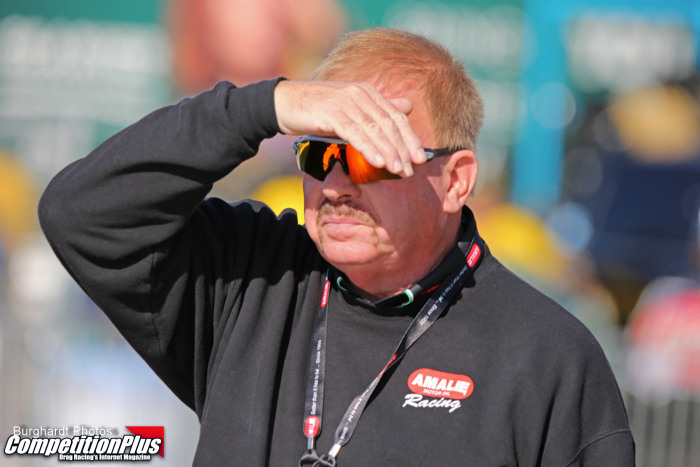
Compared to this life-altering moment, Mcmillen said real-life makes the Charlotte rock bottom seem so trivial. McMillen admits he almost quit racing, and in some ways life, after losing Jason.
“I can just say this, out of anything that’s ever happened in my life, that was the toughest,” Mcmillen said. “He just had such a promising career in a lot of different arenas. To have him pass away, just was a huge setback. And it goes back to people who said, ‘Jason would want you out here.’ People that worked with Jason said, ‘You know what? He wants you out here.”
“And then they would come over at nighttime, and we would build the car because I was ready to quit. At that point, that was as low as I could go and I just needed to quit. They wouldn’t let me, and they kept telling me that Jason wouldn’t want it this way. So these guys came out, and they just put endless hours in trying to help get everything ready.”
If a man’s life can flash before his eyes during a defining moment, for McMillen it was hardly overcoming the trials and tribulations of a nitro career which got him so emotional in winning last year’s Indianapolis event.
It was the vision of Jason standing off to the side as he received the monumental trophy and a few words he could hear him say.
“Dad, you did it, and I’m really proud of you,” McMillen said, fighting his way through the tears.
Get the @competitionplus Mobile APP to get your drag racing news quick and easy. - https://t.co/HsiKEmdZXO pic.twitter.com/qpgtrHqnpr
— Competition Plus (@competitionplus) January 4, 2019





